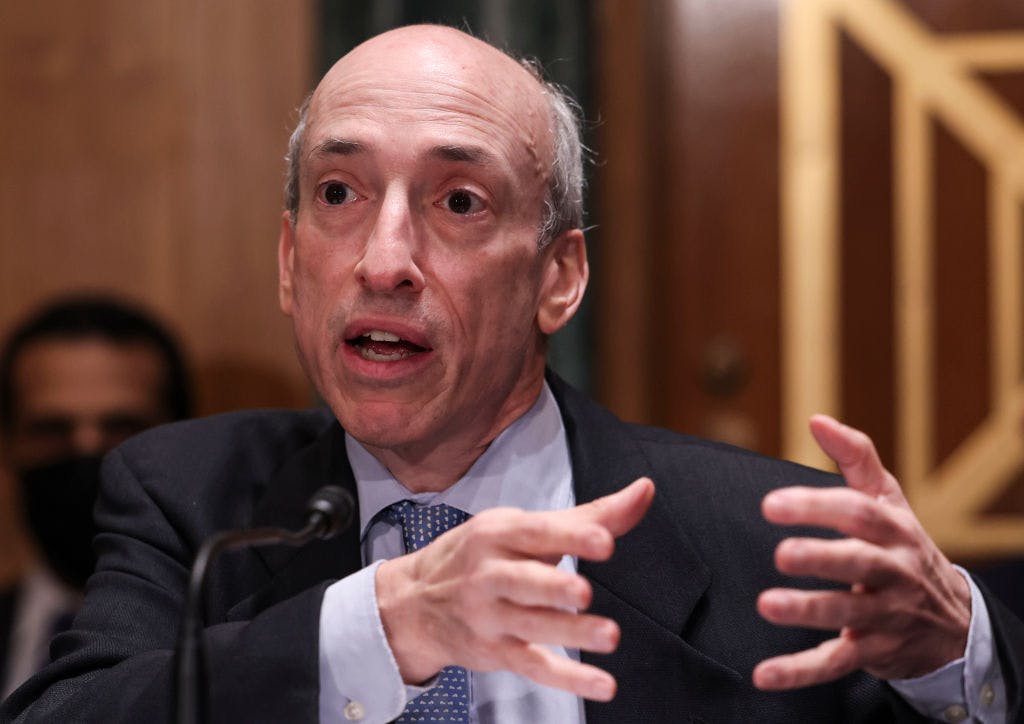Does the SEC Have the Power To Regulate the Weather?
Challenges are mounting to an effort by the government to force private companies to report their greenhouse emissions.

What will it take to cure the Biden administration of its addiction to overregulation? Its latest affront is a new mandate from the Securities and Exchange Commission requiring companies to report their greenhouse emissions. The Supreme Court has already struck down federal climate rules that go beyond the authority that Congress explicitly delegates to regulators. How does the SEC think it has the power to impose this new burden on businesses?
Count on that question to be front and center in court challenges to the new SEC regulation. The ink had hardly dried on the rules when 10 Republican-led states sued to stop the SEC in its tracks. The agency is behaving like a “puppeteer,” West Virginia’s attorney general, Patrick Morrisey, reckons, by trying to use “public companies to drive forward its climate agenda.” The SEC, for its part, is trying to palm off the new disclosures as routine.
After all, the SEC says, when the agency was set up during the New Deal, Congress gave it the power to require public companies to disclose facts like the wages paid to its officers, contract details, and “certain financial information.” That’s straightforward. Yet the SEC adds that the law gives it the right to demand disclosure of “such other information” as the SEC may “require as being necessary or appropriate” for “the public interest” or to protect investors.
It’s hard to imagine the creators of the SEC — which was set up to prevent fraud in the financial markets — would imagine the agency being deployed to enforce climate change orthodoxy. The Republican states, led by West Virginia, call this a classic case of federal regulators exceeding “the agency’s statutory authority.” Mr. Morrisey calls it “a backdoor move to undermine the energy industry.” That’s far from the only sector that will be affected.
The SEC itself estimates that the new rules will cost companies hundreds of thousands of dollars a year in additional paperwork. At a time when the economy is already reeling from the effects of Mr. Biden’s inflationary spiral, who thought it was a bright idea to add billions of dollars in reporting costs to American businesses, who will have to either pass the expenses on to consumers, or absorb the additional expenditures as a hit to the bottom line?
The scale of the new regulation, and the fact that it broadens the scope of the SEC from financial watchdog to climate enforcer suggests that the West Virginia-led lawsuit could have legs. After all, the Mountain State was victorious in 2022 at the Supreme Court in another case of regulators getting ahead of their skis. That case involved the Environmental Protection Agency, which exceeded its authority when it went too far in regulating carbon emissions.
In West Virginia v. EPA, the Nine rebuked the agency — and, one could add, the entire edifice of the modern administrative state — when it struck down, six to three, the onerous rules. The majority reckoned that a “clear congressional authorization” is required when any agency decides to deploy the power of the federal bureaucracy on any “major question.” Surely no one will disagree that the proposed climate rules would be “major.”
In another recent dispute, Sackett v. EPA, the Nine unanimously struck down yet another attempt by regulators to stretch a law too far. In that case, the Clean Water Act was misused to interfere with the rights of landowners far from any applicable waterways. This term, the Nine is weighing another federal overreach, this one forcing, without legal basis, herring fishermen to pay for federal monitors to ride along on their boats as they go about their work.
Other cases working through the courts are testing if the National Labor Relations Board has the power to regulate social media posts and even whether an old law, called the Antiquities Act, designed to protect landmarks, allows bureaucrats to bar logging on public land. In all, the action in the courts marks a pendulum swing away from regulatory overreach and toward more freedom. Count us as skeptical that the SEC’s new climate rules will prove constitutional.

